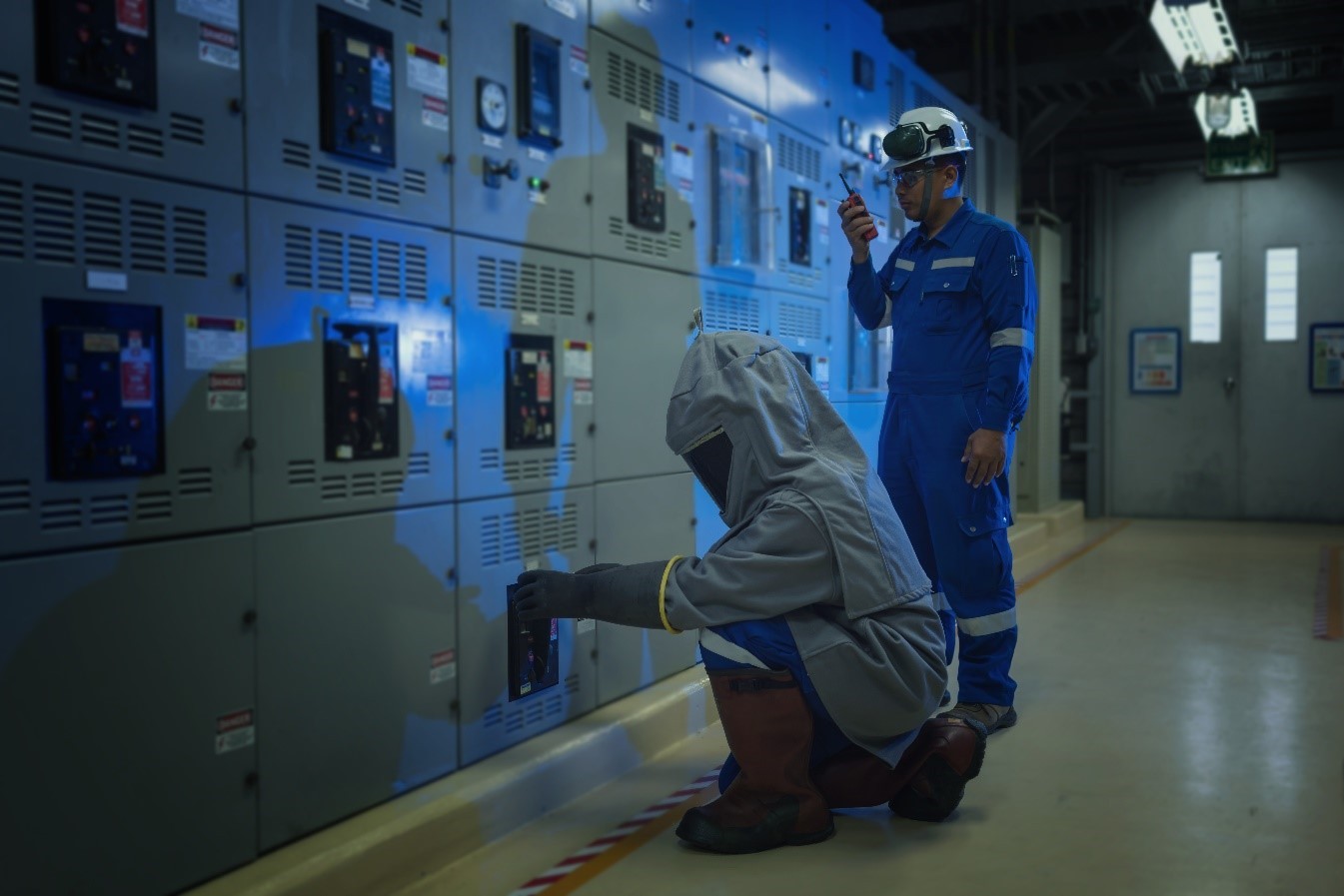The electrical system in your building is the key to everything your business does. We can’t function these days without electricity. So, it’s vital to make sure your system is in proper working order, and for that, you should turn to a qualified electrical engineer for testing and repairs. When selecting a company to work with, you want to know that safety is first priority for them. One way that electrical engineering companies prove their dedication to safety is through their employees’ use of PPE. But what is PPE, and why is it so important?
What is PPE?
PPE, or Personal Protective Equipment, is exactly what it sounds like: equipment that individuals use to keep themselves safe. In an electrical setting, PPE is designed to keep workers protected from chemicals, radiation, harmful dust, and, of course, electrical hazards. PPE is also used to protect against more standard workplace hazards such as moving or falling objects.
PPE can be used in a wide range of settings, and you might already be familiar with the term in the world of healthcare. However, different environments call for specialized types of PPE to keep workers safe from the potential hazards that they may encounter.
Types of Electrical PPE
In general, there are three main types of PPE in the electrical field: foot protection, head protection, hearing protection, and eye and face protection. PPE for the body, which is often called “fire resistant clothing” or “FR clothing,” is also important. For those working in the electrical industry, PPE should be worn on all areas of the body that may potentially be exposed to electric current or an arc flash.
Rubber is an incredible insulator, and rubber insulating sleeves and gloves help to protect the hands, arms, and shoulders. Electrical engineers will also wear flame-resistant clothes to protect themselves in the event of an arc flash. Hoods can also protect against an arc flash, while hard hats can protect against flying objects. Safety glasses are often worn to protect the eyes and face, electrically rated safety shoes can be worn to protect the feet. Finally, hearing protection is used in to protect against the high decibels reached in the event of an arc flash explosion.
Importance of PPE in Electrical Testing
Of course, the main reason why PPE is so important in electrical testing is the safety of the workers. The electrical field can be a dangerous place, and potential hazards can arise at a moment’s notice. So, equipping workers with the proper PPE is vital in ensuring that they’re prepared for any situation and will be safe no matter what happens.
It’s vital to note that PPE should be considered a “last line of defense” as far as safety hazards go. Maintaining good safety practices within the workplace should be at the top of the priority list for any company, especially those dealing with electrical hazards on a daily basis. The use of PPE is vital but should not be a substitute for following proper safety procedures.
PPE Requirements
PPE requirements can vary depending upon the jobsite and the work being performed. In order to determine the proper PPE for any given situation, a hazard assessment is required. This assessment will not only provide direction for the proper PPE to be used, but it can also play a role in outlining the overall safety program for that location.
The Occupational Safety and Health Administration (OSHA) and National Fire Protection Association (NFPA) set legal requirements for the various types of PPE, but the employer also has a responsibility to maintain their worksite and make decisions for their workers when it comes to the best approach to PPE. OSHA cannot issue blanket statements for every single workplace, as they all present different risks and may have unique circumstances that call for specific PPE.
PPE Training
Simply having the right PPE for employees to use isn’t enough; employees must also be trained on how to use their PPE properly to reduce the risk of injury. In fact, OSHA standards require employers to train their workers on when and how to wear PPE, as well as its limitations. The NFPA 70E specifically covers electrical hazards.
PPE training should be reviewed at regular intervals, not just when an electrical engineer first starts with a company. It’s important for these professionals to receive consistent updated training throughout their tenure. As OSHA requirements change and new standards are created, workers should always be updated and aware of the latest recommendations. NFPA 70E recommends training after the standard has been updated with an annual refresher.
Arc Flash Hazards
One of the biggest hazards for electrical engineers is the chance of an arc flash. As defined by OSHA, an arc flash “is a phenomenon where a flashover of electric current leaves its intended path and travels through the air from one conductor to another, or to ground.”
Arc flashes can happen in an instant, which is why it’s so important to maintain a safe workplace at all times. As we mentioned, PPE should be a last line of defense in protection against arc flashes. Still, these events can potentially lead to serious injury or even death, so electrical engineers should always wear the proper PPE as a safety precaution. There is specific arc-rated PPE that offers the best protection in these scenarios, but again, PPE is not foolproof and can only work properly if worn correctly and used in conjunction with a hazard assessment and a safety plan in the workplace.
Working with MTAEE
There are plenty of ways that electrical engineering companies can keep their employees safe, but when you’re searching for a company to work with, try to find one with the International Electrical Testing Association (NETA) accreditation. NETA is dedicated to setting and maintaining high standards for electrical safety. Electrical engineering companies must follow the highest possible standards to be considered for NETA accreditation, and they must also be reevaluated at frequent intervals.
Mark Thomas & Associates Electrical Engineers (MTAEE) is proud to be a NETA-accredited company serving clients in San Diego, Southern California, and the entire West Coast. We provide services that you know you can trust such as arc flash analyses, coordination studies, system evaluations, electrical testing and more.
For more information or to schedule services with MTAEE, contact us today.

